Michael Shellenberger
description: American writer and environmental policy advocate
29 results
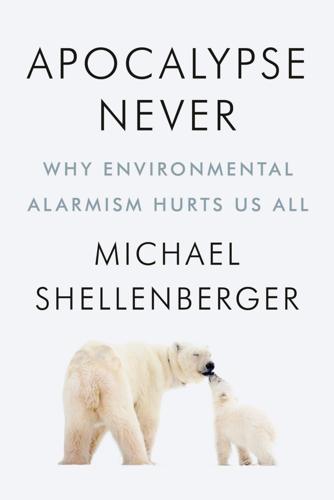
Apocalypse Never: Why Environmental Alarmism Hurts Us All
by
Michael Shellenberger
Published 28 Jun 2020
(Guy Corbishley/Alamy Live News) Caleb with Daniel at the Virunga dam, which was built to support economic development and reduce the threat to mountain gorillas from wood-fuel use. (Michael Shellenberger) In 2014, White House science advisor John Holdren claimed Roger Pielke, Jr., had misled Congress. One year later, Representative Raúl Grijalva from Arizona announced an investigation of Pielke. (Holdren: NASA Image Collection/Alamy Stock Photo: Pielke: CSPAN) Helen with the gorillas. People protect endangered species like mountain gorillas not because human civilization depends on them but rather because of their spiritual and aesthetic value. (Michael Shellenberger) About the Author MICHAEL SHELLENBERGER is a Time magazine “Hero of the Environment”; the winner of the 2008 Green Book Award from the Stevens Institute of Technology’s Center for Science Writings; and an invited expert reviewer of the next Assessment Report for the Intergovernmental Panel on Climate Change (IPCC).
…
Animals in England, writes a historian, “had been divided into the wild, to be tamed or eliminated, the domestic, to be exploited for useful purposes, and the pet, to be cherished for emotional satisfaction.” 48. Michael Shellenberger, “An Interview with Founder of Earth Innovation, Dan Nepstad,” Environmental Progress, August 25, 2019, http://environmentalprogress.org/big-news/2019/8/29/an-interview-with-founder-of-earth-innovation-dan-nepstad. 49. “Brazil and the Amazon Forest,” Greenpeace, accessed January 20, 2020, https://www.greenpeace.org/usa/issues/brazil-and-the-amazon-forest. Michael Shellenberger, “An Interview with Founder of Earth Innovation, Dan Nepstad,” Environmental Progress, August 25, 2019, http://environmentalprogress.org/big-news/2019/8/29/an-interview-with-founder-of-earth-innovation-dan-nepstad. 50.
…
Rhett Butler, “Greenpeace Accuses McDonald’s of Destroying the Amazon,” Mongabay, April 7, 2006, https://news.mongabay.com. 56. Michael Shellenberger, “An Interview with Founder of Earth Innovation, Dan Nepstad.” 57. Ibid. 58. Ibid. 59. Ibid. 60. Ibid. 61. Ibid. 62. David P. Edwards et al., “Wildlife-Friendly Oil Palm Plantations Fail to Protect Biodiversity Effectively,” Conservation Letters 3 (2010): 236–42, https://doi.org/10.1111/j.1755-263X.2010.00107.x. 63. Michael Shellenberger, “An Interview with Founder of Earth Innovation, Dan Nepstad.” 64. Dave Keating, “Macron’s Mercosur Veto—Are Amazon Fires Being Used as a Smokescreen for Protectionism?

San Fransicko: Why Progressives Ruin Cities
by
Michael Shellenberger
Published 11 Oct 2021
“Tokyo,” Atlas of Urban Expansion, accessed April 3, 2021, www.atlasofurbanexpansion.org, cited in Michael Shellenberger, “Dear Fellow YIMBYs: Yes, Urban Density Is Wonderful. But We Also Need More Suburbs,” Forbes, April 13, 2018, www.forbes.com. 9. Shellenberger, “Dear Fellow YIMBYs.” 10. “Conservation Easement,” California Council of Land Trusts, accessed April 3, 2021, www.calandtrusts.org; “Conservation Easements,” Chicago Metropolitan Agency for Planning, accessed April 3, 2021, www.cmap.illinois.gov; Michael Shellenberger, “California in Danger: Why the Dream Is Dying and How We Can Save It,” Environmental Progress, February 14, 2018, www.environmentalprogress.org. 11.
…
He has written on energy and the environment for the New York Times, the Washington Post, the Wall Street Journal, Nature Energy, and other publications for two decades. He is the founder and president of Environmental Progress, an independent, nonpartisan research organization based in Berkeley, California. Discover great authors, exclusive offers, and more at hc.com. Also by Michael Shellenberger Apocalypse Never: Why Environmental Alarmism Hurts Us All Copyright san fransicko. Copyright © 2021 by Michael Shellenberger. All rights reserved under International and Pan-American Copyright Conventions. By payment of the required fees, you have been granted the nonexclusive, nontransferable right to access and read the text of this e-book on-screen.
…
Dedication For Helen Epigraph Go, Francis, and repair my house, which as you see is falling into ruin.1 —instruction to Saint Francis Contents Cover Title Page Dedication Epigraph Introduction 1: “I Just Want to Clean Up the Mess” 2: Pleasure Island 3: The Experiment Was a Success but the Patients Died 4: The War on the War on Drugs 5: “We Can’t End Overdoses Until We End Poverty and Racism” 6: Let’s Go Dutch 7: The Crisis of Untreated Mental Illness 8: Madness for Decivilization 9: Medication First 10: Not Everyone’s a Victim 11: The Heroism of Recovery 12: Homicide and Legitimacy 13: When the Law’s Against the Laws 14: “Legalize Crime” 15: It’s Not About the Money 16: Love Bombing 17: “It’s a Leadership Problem” 18: Responsibility First 19: Civilization’s End Epilogue Acknowledgments Notes Index About the Author Also by Michael Shellenberger Copyright About the Publisher Introduction When I first heard last June that a group of people had taken over a neighborhood in downtown Seattle, ostensibly in response to the killing of an unarmed black man, George Floyd, by a police officer in Minneapolis, I couldn’t understand what had happened.
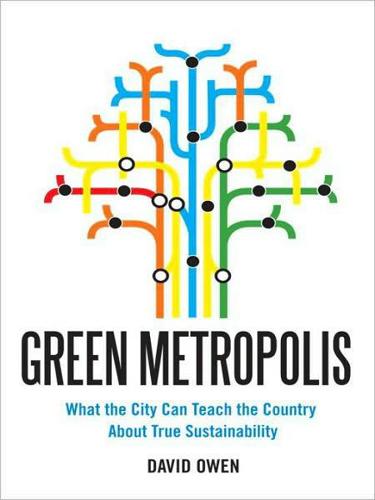
Green Metropolis: Why Living Smaller, Living Closer, and Driving Less Are Thekeys to Sustainability
by
David Owen
Published 16 Sep 2009
By the time Vladimir Putin ratified the protocol, in 2004, Russia was already certain to meet its goal for 2012. The countries with the best emissions-reduction records—Ukraine, Latvia, Estonia, Lithuania, Bulgaria, Romania, Hungary, Slovakia, Poland, and the Czech Republic—were all parts of the Soviet empire and therefore look good for the same reason. Ted Nordhaus and Michael Shellenberger, in their 2007 book Break Through: From the Death of Environmentalism to the Politics of Possibility, write, “Germany and Britain have reduced their emissions, but most of those reductions were due to the collapse of the British coal-mining industry in the 1980s and the collapse of East German heavy industry and power generation after the reunification of Germany.
…
From the macaroni box: “As the stewards of our fragile planet, we humans need to unite and speak out on behalf of all of Earth’s inhabitants—from plankton to polar bears to whales to redwoods. We are all interconnected. We all share the same home. Displaying a BE GREEN sticker gives you this voice.” 48 Ted Nordhaus and Michael Shellenberger, Break Through: From the Death of Environmentalism to the Politics of Possibility (Boston: Houghton Mifflin, 2007), pp. 113-14. 49 Doug Struck, “Canada Alters Course on Kyoto,” The Washington Post, May 3, 2006. 2. Liquid Civilization 1 Neela Banerjee, “Many Feeling Pinch After Newest Surge in U.S.
…
Scientific American , February 5, 2008. A brief version of this article appeared in the April 2008 issue of the magazine; a longer version appears online at: www.sciam.com. 19 François Leydet, The Last Redwoods and the Parkland of Redwood Creek (San Francisco: Sierra Club, 1963), p. 132, quoted in Ted Nordhaus and Michael Shellenberger, Break Through: From the Death of Environmentalism to the Politics of Possibility (Boston: Houghton Mifflin, 2007), p. 26. 20 Statistics from the National Park Service, quoted in “Environmental Awareness,” The Economist, February 8, 2007. “No park, it seems, is immune to the decline: even in Yosemite, one of the system’s oldest parks and probably its best known, the number of visitors dropped 17% over the ten-year period.

The Impulse Society: America in the Age of Instant Gratification
by
Paul Roberts
Published 1 Sep 2014
As prosperity faltered, we now found ourselves in a paradoxical position. Most Americans were still much wealthier than their grandparents had been. But our ascent had stopped: we could no longer count on advancing economically as rapidly as those earlier generations had. Many of us had entered what Ted Nordhaus and Michael Shellenberger have called a state of “insecure affluence,” where our material needs were still largely met, but our desires for better status, or more self-esteem, or other postmaterial aspirations, were being thwarted, which left us angry, anxious, and ready to blame someone. And yet, while such anger and anxiety, twenty years earlier, might have motivated us to take political action, the current culture pushed us in another direction.
…
New York: Oxford University Press, 1992. Morozov, Evgeny. To Save Everything, Click Here: The Folly of Technological Solutionism. New York: Public Affairs, 2013. Noah, Timothy. The Great Divergence: America’s Growing Inequality Crisis and What We Can Do about It. New York: Bloomsbury, 2012. Nordhaus, Ted, and Michael Shellenberger, Break Through: From the Death of Environmentalism to the Politics of Possibility. Boston: Houghton Mifflin, 2007. Packard, Vance. The Hidden Persuaders. New York: Pocket Books, 1958. ———. The Waste Makers. New York: Pocket Books, 1964. Pelfrey, William. Billy, Alfred, and General Motors: The Story of Two Unique Men, a Legendary Company, and a Remarkable Time in American History.
…
“S&P 500: Total and Inflation-Adjusted Historical Returns,” Simple Stock Investing, http://www.simplestockinvesting.com/SP500-historical-real-total-returns.htm. 7. William Lazonick and Mary O’Sullivan, “Maximizing Shareholder Value: A New Ideology for Corporate Governance,” Economy and Society 29, no. 1 (Feb. 2000): 19. 8. Ibid. 9. Ted Nordhaus and Michael Shellenberger, Break Through: From the Death of Environmentalism to the Politics of Possibility, p. 156. 10. “Work Stoppages Falling,” graph, U.S. Bureau of Labor Statistics, http://old.post-gazette.com/pg/images/201302/20130212work_stoppage600.png. 11. Loukas Karabarbounis and Brent Neiman, “Declining Labor Shares and the Global Rise of Corporate Savings,” research paper, October 2012, http://econ.sciences-po.fr/sites/default/files/file/cbenard/brent_neiman_LabShare.pdf. 12.
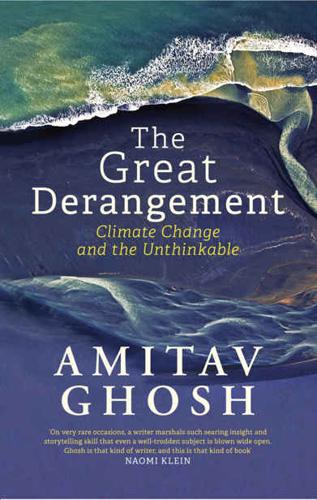
The Great Derangement: Climate Change and the Unthinkable
by
Amitav Ghosh
Published 16 Jan 2018
.: Gateway Editions, 1949), 336. 40 ‘something uncanny’: Timothy Morton, Hyperobjects (Minneapolis: University of Minnesota Press, 2013), Kindle edition, loc. 554. 40 ‘menace and uncertainty’: George Marshall, Don’t Even Think about It: Why Our Brains Are Wired to Ignore Climate Change (New York: Bloomsbury, 2014), 95. 41 processes of thought: Cf. Eduardo Kohn, How Forests Think: Toward an Anthropology beyond the Human (Berkeley: University of California Press, 2013). 43 relationship with the non-human: Cf. Michael Shellenberger and Ted Nordhaus, ‘The Death of Environmentalism: Global Warming Politics in a Post-Environmental World’ (Oakland, CA: Breakthrough Institute, 2007): ‘The concepts of “nature” and “environment” have been thoroughly deconstructed. Yet they retain their mythic and debilitating power within the environmental movement and the public at large’ (12). 44 ‘post-natural world’: Bill McKibben, The End of Nature (New York: Random House, 1989), 49. 51 tides and the seasons: Anuradha Mathur and Dilip da Cunha make this point at some length in their excellent book, SOAK: Mumbai in an Estuary (New Delhi: Rupa Publications, 2009). 51 and on Salsette: I am grateful to Rahul Srivastava, the urban theorist and cofounder of URBZ (http://urbz.net/about/people/), for this insight. 51 a chest of tea: Bennett Alan Weinberg and Bonnie K.
…
See chap. 8 of Kolbert’s Field Notes from a Catastrophe: Man, Nature, and Climate Change (New York: Bloomsbury, 2006). 183 in the United States: Anthony Giddens notes, ‘In no other country is opinion about climate change so acutely divided as in the US today.’ See Giddens’s The Politics of Climate Change, 2nd ed. (Cambridge: Polity Press, 2011), 89. 183 politics of self-definition: See Michael Shellenberger and Ted Norhaus, ‘The Death of Environmentalism’: ‘Environmentalists are in a culture war whether we like it or not’ (10). Similarly Andrew J. Hoffman, notes, ‘The debate over climate change in the United States (and elsewhere) is not about carbon dioxide and greenhouse gas models; it is about opposing cultural values and worldviews through which that science is seen’ (How Culture Shapes the Climate Change Debate [Stanford, CA: Stanford University Press, 2015], Kindle edition, loc. 139). 183 ‘means to be American’: Raymond S.
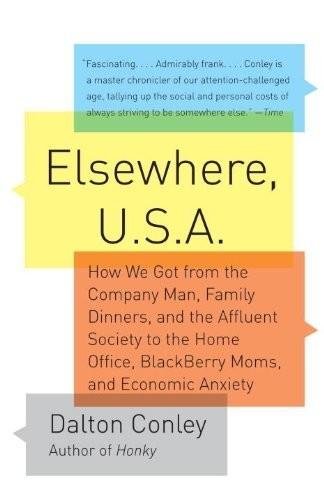
Elsewhere, U.S.A: How We Got From the Company Man, Family Dinners, and the Affluent Society to the Home Office, BlackBerry Moms,and Economic Anxiety
by
Dalton Conley
Published 27 Dec 2008
Ronald Inglehart, The Silent Revolution: Changing Values and Political Styles Among Western Publics (Princeton, N.J.: Princeton University Press, 1977). See also Ronald Inglehart, “The Silent Revolution in Post-Industrial Societies,” American Political Science Review 65 (1971): 991-1017. Ted Nordhaus and Michael Shellenberger elaborate on Inglehart’s concept in their book Break Through to suggest that we now live in a condition of “insecure affluence.” See, Ted Nordhaus and Michael Shellenberger, Break Through: From the Death of Environmentalism to the Politics of Possibility (New York: Houghton Mifflin, 2007). 2. Fred Hirsch, The Social Limits to Growth (London: Routledge & Kegan Paul, 1976). 3.
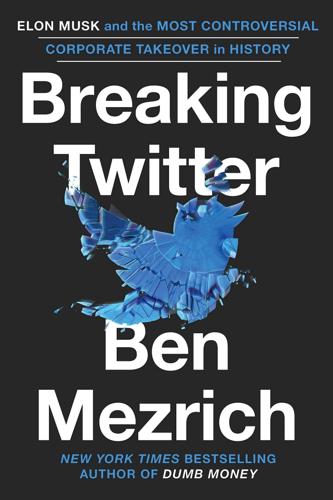
Breaking Twitter: Elon Musk and the Most Controversial Corporate Takeover in History
by
Ben Mezrich
Published 6 Nov 2023
If it were to be shown, after the fact, that the story was the result of hacked materials and a foreign agent, Twitter’s inaction could be responsible for allowing misinformation to sway a presidential election. The back-and-forth between Yoel and his team, as revealed in another Twitter files drop by author Michael Shellenberger, included a mix of wanting to cover their own actions—or asses—and coming to what seemed to be the best conclusion at the time. “I’m struggling to understand the policy basis for marking this as unsafe,” one of Yoel’s team wrote, “and I think the best explainability argument for this externally would be that we’re waiting to understand if this story is the result of hacked materials.
…
The Twitter Files, a series of tweet-threads filled with data, messages, emails, and dramatic postulation, all derived from Twitter’s internal communication channels, were eventually curated and posted by a rogues’ gallery of well-known conservative and libertarian journalists, including Matt Taibbi, Bari Weiss, Lee Fang, Michael Shellenberger, David Zweig, and Alex Berenson. The Files, dropped almost at random over the next few weeks, offered a deep look into Twitter 1.0’s inner workings. Specifically, the decision-making around some of its more controversial bans, shadow bans, and outright account suspensions—including the deliberations that had resulted in the silencing of the New York Post’s Hunter Biden Laptop story and the ban of President Trump.

American Marxism
by
Mark R. Levin
Published 12 Jul 2021
84 And after all of this, when it comes to energy, the public will suffer. America’s largest state, California, has been an incubator for far-left environmental experiments. During the summer of 2020, California’s climate policies resulted in a widespread blackout. Millions of its citizens had their electrical power cut off in the midst of a heat wave. Michael Shellenberger at Forbes explains: “[T]he underlying reasons that California… experience[ed] rolling black-outs for the second time in less than a year stem[s] from the state’s climate policies….”… “California saw its electricity prices rise six times more than the rest of the United States from 2011 to 2019, due to its huge expansion of renewables….”85 “Even though the cost of solar panels declined dramatically from 2011 and 2019,” writes Shellenberger, “their unreliable and weather-dependent nature meant that they imposed large new costs in the form of storage and transmissions to keep electricity reliable.
…
.____, MUR21083, https://www.markey.senate.gov/imo/media/doc/(2.8.2021)%20THRIVE.pdf (April 10, 2021). 84 Collin Anderson, “Progressives Push Biden to Include $10 Trillion Climate Plan in Infrastructure Package,” Washington Free Beacon, March 31, 2021, https://freebeacon.com/policy/progressives-push-biden-to-include-10-trillion-climate-plan-in-infrastructure-package/ (April 10, 2021). 85 Michael Shellenberger, “Why California’s Climate Policies Are Causing Electricity Blackouts,” Forbes, August 15, 2020, https://www.forbes.com/sites/michaelshellenberger/2020/08/15/why-californias-climate-policies-are-causing-electricity-black-outs/?sh=43991d831591 (April 10, 2021). 86 Ibid. 87 “Understanding the Texas Energy Predicament,” Institute for Energy Research, February 18, 2021, https://www.instituteforenergyresearch.org/the-grid/understanding-the-texas-energy-predicament/ (April 10, 2021). 88 Ibid. 89 Ibid. 90 Benji Jones, “The Biden administration has a game-changing approach to nature conservation,” Vox, May 7, 2021, https://www.vox.com/2021/5/7/22423139/biden-30-by-30-conservation-initiative-historic. 91 Mark R.
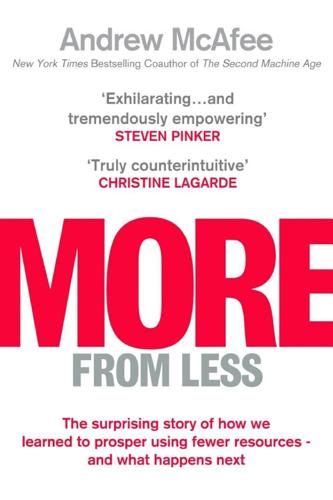
More From Less: The Surprising Story of How We Learned to Prosper Using Fewer Resources – and What Happens Next
by
Andrew McAfee
Published 30 Sep 2019
Radiation poisoning is a terrifying prospect, and the accidents at Three Mile Island in the United States, Chernobyl in Ukraine, and Fukushima in Japan seem to provide all the evidence one could need that nuclear power plants can’t be operated safely. As the environmental policy analyst and self-described “ecomodernist” Michael Shellenberger highlights, however, the evidence is strong that nuclear is actually the safest source of reliable energy. A study published in the Lancet in 2007 found that over the previous fifteen years death rates from pollution were generally hundreds of times lower for nuclear power than for coal, gas, or oil, and that accident rates were also comparatively low for nuclear.II As Shellenberger points out, “Nobody died from radiation at Three Mile Island or Fukushima,III and fewer than fifty died from Chernobyl in the thirty years since the accident.”IV Nuclear power doesn’t deserve its bad reputation.
…
solid majorities of citizens in twenty-four countries: Damian Carrington, “Citizens across World Oppose Nuclear Power, Poll Finds,” Guardian, June 23, 2011, https://www.theguardian.com/environment/damian-carrington-blog/2011/jun/23/nuclearpower-nuclear-waste. A study published in the Lancet in 2007: Anil Markandya and Paul Wilkinson, “Electricity Generation and Health,” Lancet 370, no. 9591 (September 15–21, 2007): 979–90. “Nobody died from radiation at Three Mile Island or Fukushima”: Michael Shellenberger, “If Nuclear Power Is So Safe, Why Are We So Afraid of It?,” Forbes, June 11, 2018, https://www.forbes.com/sites/michaelshellenberger/2018/06/11/if-nuclear-power-is-so-safe-why-are-we-so-afraid-of-it/#cc9469863859. The Japanese government attributed his death to the accident: Motoko Rich, “In a First, Japan Says Fukushima Radiation Caused Worker’s Cancer Death,” New York Times, September 6, 2018, https://www.nytimes.com/2018/09/05/world/asia/japan-fukushima-radiation-cancer-death.html.

Break Through: Why We Can't Leave Saving the Planet to Environmentalists
by
Michael Shellenberger
and
Ted Nordhaus
Published 10 Mar 2009
Contents * * * Title Page Contents Copyright Dedication From the Nightmare to the Dream The Politics of Limits The Birth of Environmentalism The Forest for the Trees Interests Within Interests The Prejudice of Place The Pollution Paradigm The Death of Environmentalism The Politics of Possibility Status and Security Belonging and Fulfillment Pragmatism Greatness In Gratitude Notes Bibliography Index Connect with HMH Copyright © 2007 by Ted Nordhaus and Michael Shellenberger ALL RIGHTS RESERVED For information about permission to reproduce selections from this book, write to trade.permissions@hmhco.com or to Permissions, Houghton Mifflin Harcourt Publishing Company, 3 Park Avenue, 19th Floor, New York, New York 10016. hmhco.com The Library of Congress has cataloged the print edition as follows: Nordhaus, Ted. Break through: from the death of environmentalism to the politics of possibility / Ted Nordhaus and Michael Shellenberger. p. cm. Includes bibliographical references and index.
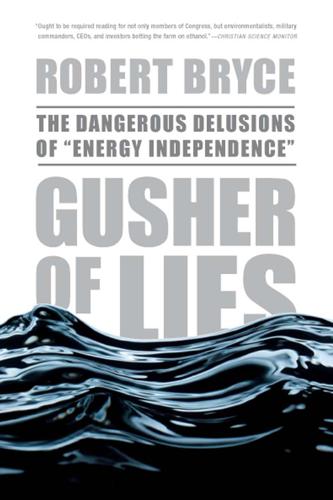
Gusher of Lies: The Dangerous Delusions of Energy Independence
by
Robert Bryce
Published 16 Mar 2011
He also claimed that while he supports wind power, “some places should be off limits to any sort of industrial development” and that “our most important wildernesses are 228 GUSHER OF LIES those that are closest to our densest population centers, like Nantucket Sound.”19 Kennedy’s many critics contended that his opposition was just another example of the NIMBY (not-in-my-backyard) syndrome. Two environmental activists, Ted Norhaus and Michael Shellenberger, quickly penned a response to Kennedy in the San Francisco Chronicle, calling his opposition to the wind farm an example of “a worldview born among the privileged patricians of a generation for whom building mansions by the sea was indistinguishable from advocating for the preservation of national parks.”20 In early 2007, the owners of the fabled King Ranch, one of the largest working ranches in the world, led a push in the Texas legislature to pass a law that would regulate the installation of wind turbines.
…
Capewind.org. Available: http://www.capewind.org/article24.htm. 19. Robert F. Kennedy, Jr., “An Ill Wind off Cape Cod,” New York Times, December 16, 2005. Available: http://www.nytimes.com/2005/12/16/opinion/ 16kennedy.html?ex=1292389200&en=58e5dd67e381fd58&ei=5090&partner =rssuserland&emc=rss. 20. Michael Shellenberger and Ted Norhaus, “Arctic Battle Should Move to Hyannis Port,” San Francisco Chronicle, December 21, 2005. Available: http://www.sfgate.com/cgi-bin/article.cgi?f=/c/a/2005/12/21/EDGU6 GALTN1.DTL. 21. Robert Elder, “King Ranch Leads Backlash against Wind Farms,” Austin American-Statesman, March 28, 2007. 22.
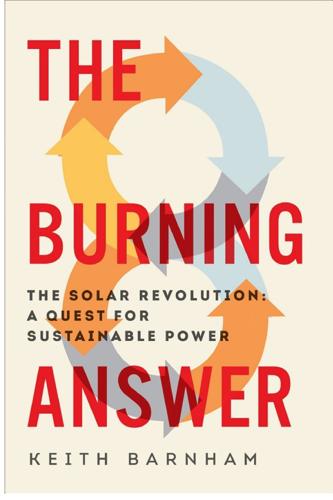
The Burning Answer: The Solar Revolution: A Quest for Sustainable Power
by
Keith Barnham
Published 7 May 2015
It will also help you appreciate how complementary the solar technologies are in supplying our electricity. We will also need some physics in Part II to counter the arguments of those who oppose the solar revolution. Many people find the debate about energy options extremely confusing. Here is a typical argument from two commentators, Ted Nordhaus and Michael Shellenberger, in The Wall Street Journal on 22 May 2013. They are clearly sceptical about renewable energy and critical of two solar supporters, Robert F. Kennedy Jr of the Natural Resources Defense Council and Bill McKibben, who had been writing in The Daily Beast. You can find the reference to this, and other quotations, in the Bibliography.
…
Bill Bryson, A Short History of Nearly Everything, Doubleday (2003). 4. Jeremy Leggett, Half Gone: Oil, Gas, Hot Air and the Global Energy Crisis, Portobello Books (2005). 5. Jeremy Leggett, The Energy of Nations: Risk Blindness and the Road to Renaissance, Routledge (2014). 6. Ted Nordhaus and Michael Shellenberger, ‘Going Green? Then Go Nuclear’, Wall Street Journal, 22 May 2013, http://online.wsj.com/news/articles/SB100014241278873237163045784826634914263 12, accessed 10 December 2013. 7. K.W.J. Barnham, D. Hart, J. Nelson and R.A. Stevens, ‘Production and destination of British civil plutonium’, Nature, 317, 213 (1985). 8.
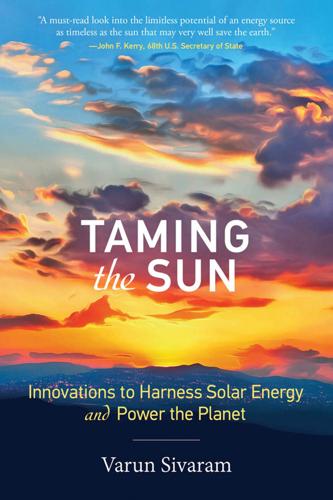
Taming the Sun: Innovations to Harness Solar Energy and Power the Planet
by
Varun Sivaram
Published 2 Mar 2018
Staffell, “The Future Cost of Electrical Energy Storage Based on Experience Rates,” Nature Energy 2 (2017), doi: 10.1038/nenergy.2017.110. 33. Arnulf Grubler, “The Costs of the French Nuclear Scale-Up: A Case of Negative Learning by Doing,” Energy Policy 38, no. 9 (2010): 5174–5188, doi:10.1016/j.enpol.2010.05.003. 34. Ted Nordhaus, Jessica Lovering, and Michael Shellenberger, “How To Make Nuclear Cheap,” The Breakthrough Institute, June 2014, https://thebreakthrough.org/images/pdfs/Breakthrough_Institute_How_to_Make_Nuclear_Cheap.pdf 35. Brad Plumer, “How Carbon Capture Could Become a Rare Bright Spot on Climate Policy in the Trump Era,” Vox, April 12, 2017, http://www.vox.com/energy-and-environment/2017/4/12/15269628/carbon-capture-trump. 36.
…
No. 115-JCX-3–17, Estimates of Federal Tax Expenditures for Fiscal Years 2016–2020, (2017), https://www.jct.gov/publications.html?func=startdown&id=4971. 33. David G. Victor and Kassia Yanosek, “The Crisis in Clean Energy Stark Realities of the Renewables Craze,” Foreign Affairs (July/August 2011): 112–120, https://www.foreignaffairs.com/articles/2011-06-16/crisis-clean-energy. 34. Alex Trembath, Ted Nordhaus, Michael Shellenberger, and Jesse Jenkins, “Beyond Boom and Bust: Putting Clean Tech on a Path to Subsidy Independence,” The Breakthrough, April 17, 2012, http://thebreakthrough.org/archive/beyond_boom_and_bust_report_ov. 35. Nichola Groom, “Prospect of Trump Tariff Casts Pall over U.S. Solar Industry,” Reuters, July 25, 2017, http://www.reuters.com/article/us-usa-trade-solar-insight-idUSKBN1AA0BI. 36.

Battle for the Bird: Jack Dorsey, Elon Musk, and the $44 Billion Fight for Twitter's Soul
by
Kurt Wagner
Published 20 Feb 2024
She does just that: ‘as an fyi, Safety has assessed the DJT Tweet above and determined that there is no violation of our policies at this time.’ ” Twitter, December 12, 2022, 10:23 a.m., https://twitter.com/bariweiss/status/1602368444485148672. She worried that Trump’s language might be “coded incitement to further violence”: Bari Weiss, Isaac Grafstein, Suzy Weiss, Michael Shellenberger, Peter Savodnik, and Olivia Reingold, “Why Twitter Really Banned Trump,” The Free Press, December 15, 2022, https://www.thefp.com/p/why-twitter-really-banned-trump. which forbade people from glorifying a violent act in a way that “could incite or lead to further violence”: “Glorification of Violence Policy,” Twitter Help Center, https://help.twitter.com/en/rules-and-policies/glorification-of-violence.
…
The first dump looked at Twitter’s handling of the Hunter Biden laptop incident: Kurt Wagner, “Musk Hails Release of Twitter Emails on Hunter Biden Story,” Bloomberg, December 2, 2022, https://www.bloomberg.com/news/articles/2022-12-03/musk-hails-release-of-twitter-emails-on-hunter-biden-story?sref=dZ65CIng. keeping their accounts from trending on the service without telling them: Bari Weiss, Abigail Shrier, Michael Shellenberger, and Nellie Bowles, “Twitter’s Secret Blacklists,” Free Press, December 15, 2022, https://www.thefp.com/p/twitters-secret-blacklists. “Can high school students ever meaningfully consent to sex with their teachers?”: Yoel Roth (@yoyoel), “Can high school students ever meaningfully consent to sex with their teachers?
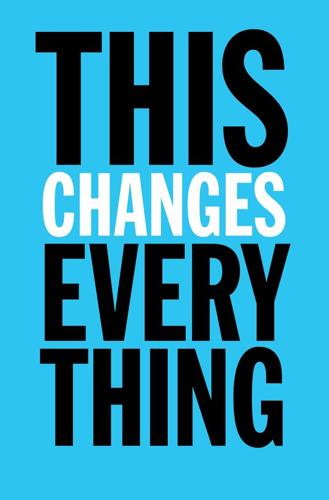
This Changes Everything: Capitalism vs. The Climate
by
Naomi Klein
Published 15 Sep 2014
Dan Kahan et al., “The Tragedy of the Risk-Perception Commons: Culture Conflict, Rationality Conflict, and Climate Change,” Cultural Cognition Project Working Paper No. 89, 2011, pp. 15-16, available at http://culturalcognition.net; Umair Irfan, “Report Finds ‘Motivated Avoidance’ Plays a Role in Climate Change Politics,” ClimateWire, December 19, 2011; Irina Feygina, John T. Jost, and Rachel E. Goldsmith, “System Justification, the Denial of Global Warming, and the Possibility of ‘System-Sanctioned Change,’ ” Personality and Social Psychology Bulletin 36, (2010): 336. 62. Ted Nordhaus and Michael Shellenberger, “The Long Death of Environmentalism,” Breakthrough Institute, February 25, 2011; Michael Shellenberger and Ted Nordhaus, “Evolve,” Orion, September/October 2011. 63. Scott Condon, “Expert: Win Climate Change Debate by Easing off Science,” Glenwood Springs Post Independent, July 29, 2010. 64. For an example of how psychologists interested in generational differences have analyzed data from “The American Freshman” survey run out of the University of California, Los Angeles, see: Jean M.
…
“Bill Gates: Innovating to Zero!” TED Talk, February 12, 2010, http://www.ted.com; Levitt and Dubner, SuperFreakonomics, 199. 45. Bruno Latour, “Love Your Monsters: Why We Must Care for Our Technologies as We Do Our Children,” in Love Your Monsters: Postenvironmentalism and the Anthropocene, ed. Michael Shellenberger and Ted Nordhaus (Oakland: Breakthrough Institute, 2011); Mark Lynas, The God Species: How the Planet Can Survive the Age of Humans (London: Fourth Estate, 2011). 46. Keith, A Case for Climate Engineering, 111. 47. Italics in original. Ed Ayres, God’s Last Offer (New York: Four Walls Eight Windows, 1999), 195. 48.
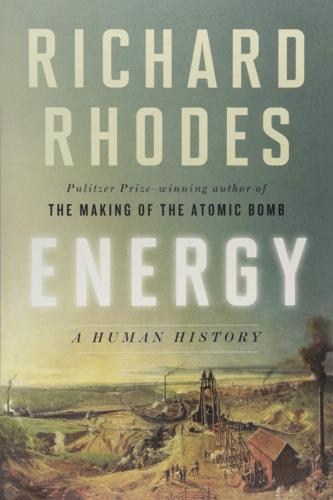
Energy: A Human History
by
Richard Rhodes
Published 28 May 2018
The late Ted Rockwell shared his experiences working with Hyman Rickover and building the first US commercial nuclear power plant. I benefited from correspondence with Cesare Marchetti and from discussions present or past with Harold Agnew, Hans Bethe, Richard Garwin, Thomas Graham Jr., David Rossin, Michael Shellenberger, Stanislav Shushkevich, Charles Till, Eugene Wigner, and no doubt others whose names escape me. I thank them all. Anne Sibbald, my agent, represented me with her unfailing intelligence and professionalism. Ben Loehnen, my editor at Simon & Schuster, wielded his keen Occam’s razor to make a better (and shorter) book.
…
Niering, William A. “Forces That Shaped the Forests of the Northeastern United States.” Northeastern Naturalist 5, no. 2 (1998): 99–110. [Nixon, George] An Enquiry into the Reasons of the Advance of the Price of Coals, Within Seven Years Past. London: E. Comyns, 1739. Nordhaus, Ted, and Michael Shellenberger. Breakthrough: From the Death of Environmentalism to the Politics of Possibility. Boston: Houghton Mifflin, 2007. Norman, Oscar Edward. The Romance of the Gas Industry. Chicago: A. C. McClurg, 1922. Norris, Robert S., and Hans M. Kristensen. “Global Nuclear Weapons Inventories, 1945–2010.”
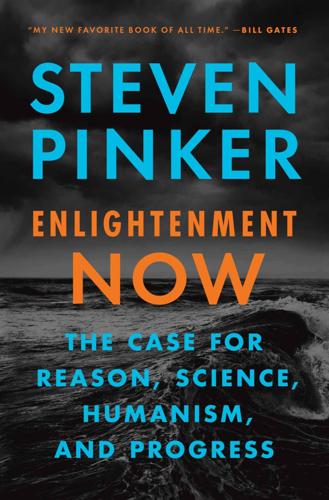
Enlightenment Now: The Case for Reason, Science, Humanism, and Progress
by
Steven Pinker
Published 13 Feb 2018
I also profited from comments by experts who read chapters or excerpts, including Scott Aronson, Leda Cosmides, Jeremy England, Paul Ewald, Joshua Goldstein, A. C. Grayling, Joshua Greene, Cesar Hidalgo, Jodie Jackson, Lawrence Krauss, Branko Milanović, Robert Muggah, Jason Nemirow, Matthew Nock, Ted Nordhaus, Anthony Pagden, Robert Pinker, Susan Pinker, Stephen Radelet, Peter Scoblic, Martin Seligman, Michael Shellenberger, and Christian Welzel. Other friends and colleagues answered questions or made important suggestions, including Charleen Adams, Rosalind Arden, Andrew Balmford, Nicolas Baumard, Brian Boutwell, Stewart Brand, David Byrne, Richard Dawkins, Daniel Dennett, Gregg Easterbrook, Emily-Rose Eastop, Nils Petter Gleditsch, Jennifer Jacquet, Barry Latzer, Mark Lilla, Karen Long, Andrew Mack, Michael McCullough, Heiner Rindermann, Jim Rossi, Scott Sagan, Sally Satel, and Michael Shermer.
…
Curing a body of cancer requires radical and invasive therapy, and therefore, curing the biosphere of the human virus will also require a radical and invasive approach.”2 Recently an alternative approach to environmental protection has been championed by John Asafu-Adjaye, Jesse Ausubel, Andrew Balmford, Stewart Brand, Ruth DeFries, Nancy Knowlton, Ted Nordhaus, Michael Shellenberger, and others. It has been called Ecomodernism, Ecopragmatism, Earth Optimism, and the Blue-Green or Turquoise movement, though we can also think of it as Enlightenment Environmentalism or Humanistic Environmentalism.3 Ecomodernism begins with the realization that some degree of pollution is an inescapable consequence of the Second Law of Thermodynamics.
…
The long death of environmentalism. The Breakthrough. http://thebreakthrough.org/archive/the_long_death_of_environmenta. Nordhaus, T., & Shellenberger, M. 2013. How the left came to reject cheap energy for the poor: The great progressive reversal, part two. The Breakthrough. http://thebreakthrough.org/index.php/voices/michael-shellenberger-and-ted-nordhaus/the-great-progressive-reversal. Nordhaus, W. 1974. Resources as a constraint on growth. American Economic Review, 64, 22–26. Nordhaus, W. 1996. Do real-output and real-wage measures capture reality? The history of lighting suggests not. In T. F. Bresnahan & R. J. Gordon, eds., The economics of new goods.

Who Stole the American Dream?
by
Hedrick Smith
Published 10 Sep 2012
Newman, Xiao-Yin Jin, et al., “High Tech Indicators: Technology-Based Competitiveness of 33 Nations” (Atlanta, GA: Technology Policy and Assessment Center, Georgia Tech University, 2008), http://www.tpac.gatech.edu. 40 Ranked the United States fifth “U.S. Falls to 5th in Global Competitiveness, Survey Shows,” Associated Press, September 7, 2011. 41 The trends in patents National Academy of Sciences, Gathering Storm, Revisited. 42 The United States will soon be importing Rob Atkinson, Michael Shellenberger, Ted Nordhaus, et al., “Rising Tigers, Sleeping Giant: Asian Nations Set to Dominate the Clean Energy Race by Out-Investing the United States,” Breakthrough Institute and Information Technology and Innovation Foundation, November 2009, http://www.thebreakthrough.org. 43 It will take dramatically expanding government funding National Academy of Sciences, Gathering Storm, appendix E, recommendations called for $13 billion a year in government spending for a decade, starting in 2007. 44 Obama provided a kick start President Barack Obama, remarks, National Academy of Sciences, April 27, 2009; “Fact Sheet: A Historic Commitment to Research and Education,” April 27, 2009, http://www.whitehouse.gov. 45 Obama put $400 million Matthew L.
…
Center on Budget and Policy Priorities, Washington, DC, March 29, 2007. Atkinson, Robert D., and Scott M. Andes. “The Atlantic Century II: Benchmarking EU and U.S. Innovation and Competitiveness.” Information Technology and Innovation Foundation, Washington, DC, July 2011. Atkinson, Rob, Michael Shellenberger, Ted Nordhaus, et al. “Rising Tigers, Sleeping Giant: Asian Nations Set to Dominate the Clean Energy Race by Out-Investing the United States.” Breakthrough Institute; Information Technology and Innovation Foundation, Washington, DC, November 2009. Baker, Dean. “The Productivity to Paycheck Gap: What the Data Show.”

How to Run the World: Charting a Course to the Next Renaissance
by
Parag Khanna
Published 11 Jan 2011
Jason DeParle, “Western Union Empire Moves Migrant Cash Home,” The New York Times, November 22, 2007. 10. Ibid., “A Good Provider Is One Who Leaves,” The New York Times Magazine, April 22, 2007. Chapter Ten: Your Planet, Your Choice 1. Scott Borgerson, “Sea Change,” Atlantic Monthly, December 2008, 88–89. 2. Ted Nordhaus and Michael Shellenberger, “Scrap Kyoto,” Democracy, Summer 2008. 3. Lydia Polgreen, “Mali’s Farmers Discover a Weed’s Potential Power,” The New York Times, September 9, 2007. 4. Adapted from SustainAbility, http://www.sustainability.com. 5. Benedict Kingsbury, Nico Krisch, and Richard Stewart, “The Emergence of Global Administrative Law,” Law and Contemporary Problems 68 (Summer/Autumn 2005).

The Uninhabitable Earth: Life After Warming
by
David Wallace-Wells
Published 19 Feb 2019
“nature is thriving”: Thomas’s book is Inheritors of the Earth: How Nature Is Thriving in an Age of Extinction (New York: Public Affairs, 2017), and while it offers not so much a full-throated celebration of what he calls an “age of extinction” but a more modest proposal that we view the positive, generative effects of climate change alongside its crueler impacts. This is a note of contrarian optimism echoing Michael Shellenberger and Ted Nordhaus, in their Break Through: Why We Can’t Leave Saving the Planet to Environmentalists and Love Your Monsters: Postenvironmentalism and the Anthropocene; and the Canadian, Swedish, and South African academics behind the research collaboration “Bright Spots,” who, despite considerably more concern about the effects of global warming, nevertheless keep a running list of positive environmental developments they believe makes the case for what they call a “good Anthropocene.”
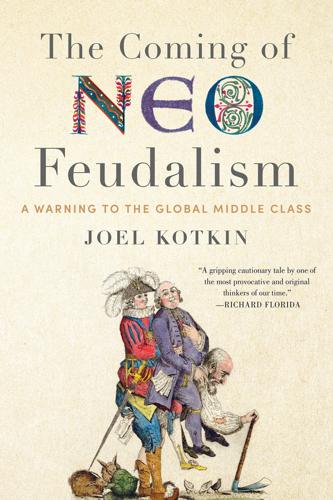
The Coming of Neo-Feudalism: A Warning to the Global Middle Class
by
Joel Kotkin
Published 11 May 2020
Paul, “The European Center Weakens,” Real Clear Politics, May 28, 2019, https://www.realclearpolitics.com/2019/05/28/the_european_center_weakens_475904.html. 8 Barrington Moore, Jr., Social Origins of Dictatorship and Democracy (Boston: Beacon, 1966), 418. 9 Frederick Hayek, The Road to Serfdom (Chicago: University of Chicago Press, 1972), 13. 10 Matthew Continetti, “Our Bankrupt Elite,” Washington Free Beacon, March 15, 2019, https://freebeacon.com/columns/our-bankrupt-elite/. 11 “Democrats: The Real Party of the Rich,” Investor’s Business Daily, April 2, 2014, https://www.investors.com/politics/editorials/democrat-political-donations-outstrip-republicans/; Rupert Durwall, “Behind the Green New Deal: An elite war on the working class,” New York Post, March 26, 2019, https://nypost.com/2019/03/26/behind-the-green-new-deal-an-elite-war-on-the-working-class/. 12 Alexis de Tocqueville, The Ancien Regime and the Revolution (London: Penguin, 2008), 144. 13 John Hinderaker, “Exposing the Real Costs of ‘Green’ Energy,” Power Line, March 12, 2019, https://www.powerlineblog.com/archives/2019/03/exposing-the-real-costs-of-green-energy.php. 14 Anastasia Lin, “The Cultural Revolution Comes to North America,” Wall Street Journal, April 7, 2019, https://www.wsj.com/articles/the-cultural-revolution-comes-to-north-america-11554661623. 15 Rebecca Ratcliffe, “Record private jet flights into Davos as leaders arrive for climate talk,” Guardian, January 22, 2019, https://www.theguardian.com/global-development/2019/jan/22/record-private-jet-flights-davos-leaders-climate-talk; Michael Shellenberger, “The Real Reason They Behave Hypocritically On Climate Change Is Because They Want To,” Forbes, August 20, 2019, https://www.forbes.com/sites/michaelshellenberger/2019/08/20/the-real-reason-they-behave-hypocritically-on-climate-change-is-because-they-want-to/#5e242363185a. 16 Eliza Relman, “Alexandria Ocasio-Cortez said billionaires shouldn’t exist as long as Americans live in abject poverty,” Business Insider, January 22, 2019, https://www.businessinsider.com/alexandria-ocasio-cortez-thinks-billionaires-shouldnt-exist-2019-1; Walter E.
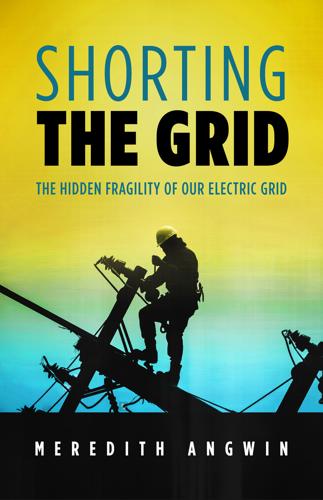
Shorting the Grid: The Hidden Fragility of Our Electric Grid
by
Meredith. Angwin
Published 18 Oct 2020
Tim Knauer’s article on Syracuse.com has a picture of part of the scene at the rally: “Dozens of CNY residents flood Albany meeting on nuclear subsidies.”189 I had the good luck to get a seat in the Public Service Commissioner meeting room itself: the department had to open three “overflow” rooms with video feeds because of the large crowd. I heard the historical decision to support all kinds of clean energy—renewable and nuclear. I love the picture of us celebrating after the rally (figure 14). We are gathered outside the building in which the meeting was held. Michael Shellenberger has opened a bottle of non-alcoholic bubbly. He shook it first, so it is spraying all over. Eric Meyer’s face is partially hidden by the bubbles. Rod Adams is at the right, with his fist in the air in joy. Sarah Woolf is holding her “Mothers for Nuclear” sign at the left. I’m there with my pro-nuclear T-shirt from my own rallies.
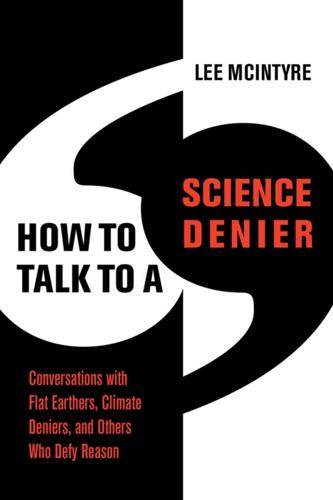
How to Talk to a Science Denier: Conversations With Flat Earthers, Climate Deniers, and Others Who Defy Reason
by
Lee McIntyre
Published 14 Sep 2021
This is not to mention the issue of mass extinction and loss of biodiversity of other species. Robert Watson, “Loss of Biodiversity Is Just as Catastrophic as Climate Change,” Guardian, May 6, 2019, https://www.theguardian.com/commentisfree/2019/may/06/biodiversity-climate-change-mass-extinctions; Michael Shellenberger, “Why Apocalyptic Claims About Climate Change Are Wrong,” Forbes, November 25, 2019, https://www.forbes.com/sites/michaelshellenberger/2019/11/25/why-everything-they-say-about-climate-change-is-wrong/#5cea81cb12d6; Chris Mooney, “Scientists Challenge Magazine Story about ‘Uninhabitable Earth,” Washington Post, July 12, 2017, https://www.washingtonpost.com/news/energy-environment/wp/2017/07/12/scientists-challenge-magazine-story-about-uninhabitable-earth/; Jen Christensen, “250,000 Deaths a Year from Climate Change Is a ‘Conservative Estimate,’ Research Says,” CNN, January 16, 2019, https://www.cnn.com/2019/01/16/health/climate-change-health-emergency-study/index.html; “The Impact of Global Warming on Human Fatality Rates,” Scientific American, June 7, 2009, https://www.scientificamerican.com/article/global-warming-and-health/. 25.
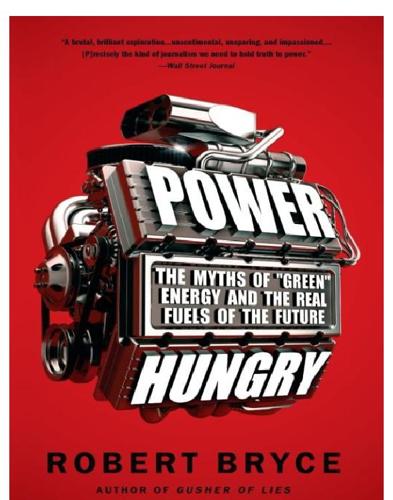
Power Hungry: The Myths of "Green" Energy and the Real Fuels of the Future
by
Robert Bryce
Published 26 Apr 2011
As the global economy continues to shift, cheap energy will allow more people to travel farther to find jobs. And, as always, cheap energy will allow for greater increases in productivity. But the United States must not only aim to have cheap energy at home, it must pursue that goal globally. As Michael Shellenberger and Ted Nordhaus of the Breakthrough Institute have declared, “we need to make clean energy cheap worldwide.”9 The pursuit of cheap energy means pursuing N2N. Natural gas and nuclear power offer the best no-regrets energy policy because they reduce the volumes of neurotoxins released into the environment, cut solid waste production, slash greenhouse gases, eliminate air pollution, and obviate the need for carbon capture and sequestration.

Whole Earth: The Many Lives of Stewart Brand
by
John Markoff
Published 22 Mar 2022
Schwartz went public first beginning in 2003 with an article in Wired arguing that nuclear could be a “stopgap” while other sustainable energy sources matured.[6] Two years later he gave a more full-throated endorsement of nuclear power with another article, coauthored with Spencer Reiss, that proclaimed “Nuclear Now!”[7] In 2003, two renegade environmental activists, Michael Shellenberger and Ted Nordhaus, had created the Breakthrough Institute to promote technological solutions to environmental problems, departing from the environmental movement’s opposition to nuclear power. The next year they published a manifesto titled “Is Environmentalism Dead?” that touched off a heated debate about nuclear power within the American environmental movement, with Shellenberger and Nordhaus being attacked by a range of mainstream environmentalists led by Carl Pope, the president of the Sierra Club.
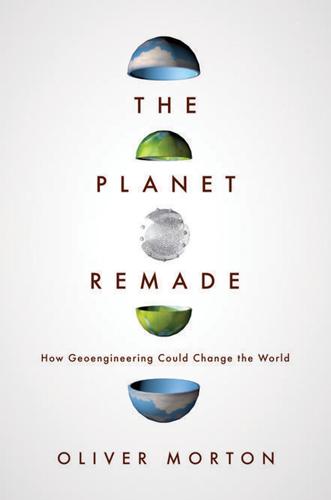
The Planet Remade: How Geoengineering Could Change the World
by
Oliver Morton
Published 26 Sep 2015
On top of the opportunities to listen, talk and socialise at various geoengineering meetings and summer schools in Asilomar, Berlin, Big Sur, Calgary, both Cambridges, Edinburgh, Heidelberg, Lisbon, Oxford, Potsdam, Santa Cruz and Waterloo, I have enjoyed similar stimulation at the Breakthrough Dialogues convened by Ted Nordhaus and Michael Shellenberger. I am also very grateful to NCAR for a media fellowship in 2009 and to the Skoll Foundation and Sundance Institute for their ‘Stories of Change’ project. At a number of these venues it has been a pleasure to work alongside various other writers interested in this most fascinating topic, including Catherine Brahic, Jamais Cascio, Christopher Cokinos, Jeff Goodell, Eli Kintisch, Fred Pearce, Andy Revkin, Jon Vidal and Gaia Vince.
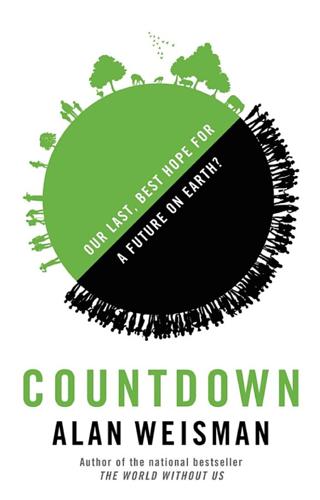
Countdown: Our Last, Best Hope for a Future on Earth?
by
Alan Weisman
Published 23 Sep 2013
“Ongoing Global Biodiversity Loss and the Need to Move Beyond Protected Areas: A Review of the Technical and Practical Shortcomings of Protected Areas on Land and Sea.” Marine Ecology Progress Series. doi: 10.3354/meps09214. Moreland, Scott, Ellen Smith, and Suneeta Sharma. “World Population Prospects and Unmet Need for Family Planning.” Washington, DC: Futures Group, April 2010. Nordhaus, Ted, Michael Shellenberger, and Linus Blomqvist. The Planetary Boundaries hypothesis: A Review of the Evidence. Oakland, CA: The Breakthrough Institute, June 11, 2012 “Obama Administration: Health Insurers Must Cover Birth Control with No Copays.” Huffington Post, August 1, 2011. O’Neill Brian C., Michael Dalton, Regina Fuchs, Leiwen Jiang, Shonali Pachauri, and Katarina Zigova.

Elon Musk
by
Walter Isaacson
Published 11 Sep 2023
Matt Taibbi, “Note from San Francisco,” TK News, Substack, Dec. 29, 2022; Matt Taibbi, Twitter File threads, TK News; Matt Taibbi, “America Needs Truth and Reconciliation on Russiagate,” TK News, Jan. 12, 2023; Matt Taibbi, Twitter threads, Dec. 2022–Jan. 2023; Cathy Young, “Are the Twitter Files a Nothingburger?,” The Bulwark, Dec. 14, 2022; Tim Miller, “No, You Do Not Have a Constitutional Right to Post Hunter Biden’s Dick Pic on Twitter,” The Bulwark, Dec. 3, 2022; Bari Weiss, “Our Reporting at Twitter,” The Free Press, Dec. 15, 2022; Bari Weiss, Abigail Shrier, Michael Shellenberger, and Nellie Bowles, “Twitter’s Secret Blacklists,” The Free Press, Dec. 15, 2022; David Zweig, “How Twitter Rigged the COVID Debate,” The Free Press, Dec 26, 2022; Freddie Sayers and Jay Bhattacharya, “What I Discovered at Twitter HQ,” unherd.com, Dec. 26, 2022. 91. Rabbit Holes: Author’s interviews with Elon Musk, Claire Boucher (Grimes), Kimbal Musk, James Musk, Ross Nordeen, Bari Weiss, Nellie Bowle, Yoel Roth, David Zaslav.
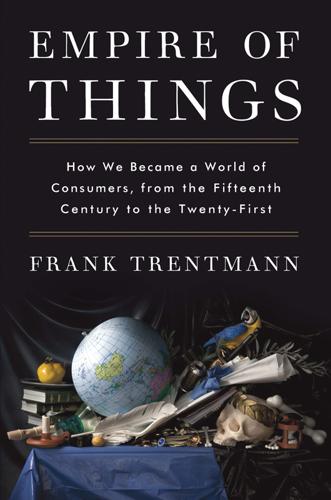
Empire of Things: How We Became a World of Consumers, From the Fifteenth Century to the Twenty-First
by
Frank Trentmann
Published 1 Dec 2015
tab=table&plugin=1&language=en&pcode=tsdpc310. 122. The size of the rebound effect and how to measure it remains a subject of considerable controversy. The International Energy Agency, in its World Energy Outlook in 2012, reckoned it to be a modest 9%. Other experts reach 50%: e.g. Ted Nordhaus, Michael Shellenberger & Jesse Jenkins, Energy Emergence: Rebound and Backfire as Emergent Phenomena (Oakland, MD, 2011). 123. 2011 ‘Consommation durable’ fair, Paris: ADEME (French environment and energy management agency), Petites réponses, 9. 124. 1993: 10.01 quadrillion Btu vs 10.17 quadrillion Btu in 2009: US Energy Information Administration, Residential Energy Consumption Survey, 2009. 125.